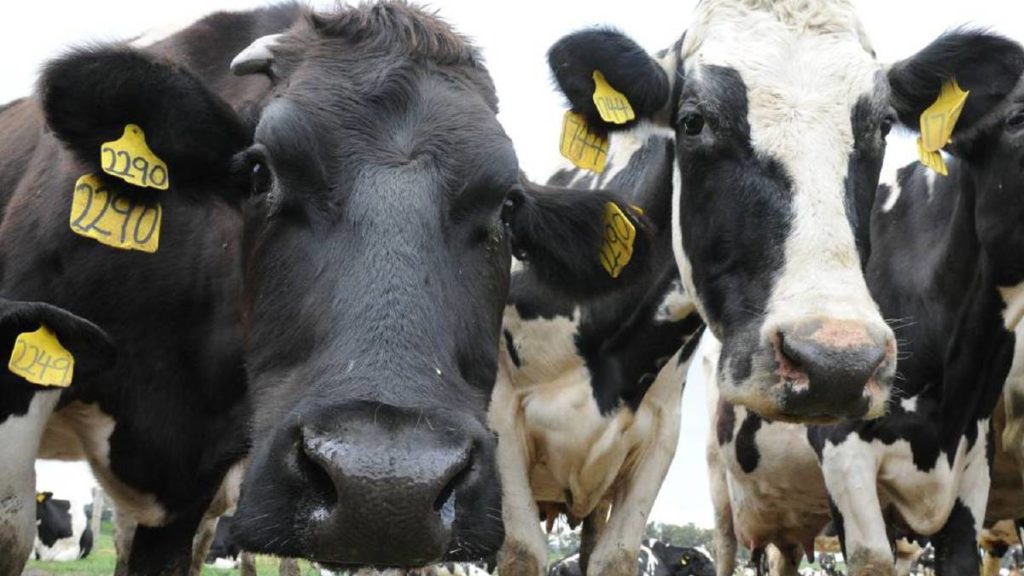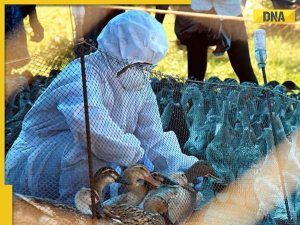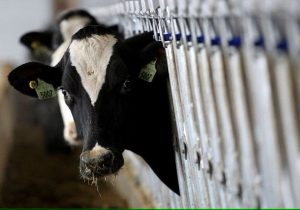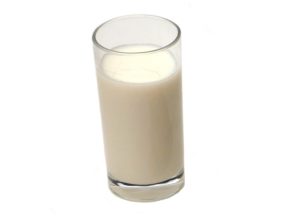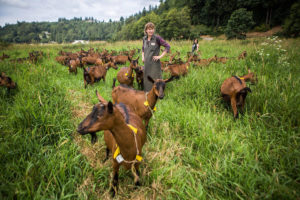A 20 per cent increase in the mandatory dairy service levy that farmers pay Dairy Australia has been recommended by the independent committee reviewing the levy.
The Levy Poll Advisory Committee, on Wednesday, released the options to be put to a levy poll next year.
But farmers will not be given a choice to decrease or remove the levy.
The four levy options to be presented in the poll are:
- No change to the levy (status quo).
- An increase of 15pc.
- an increase of 20pc (recommended by LPAC).
- an increase of 25pc.
Farmers currently pay 2.8683 cents per kilogram of milk fat and 6.9914c/kg protein in levies to Dairy Australia.
Dairy farmers last voted on the levy in 2012.
In late 2015, dairy levy payers voted to remove the compulsory requirement for Dairy Australia to convene a levy poll at least every five years.
The decision to not offer a decrease option in next year’s poll has angered some farmers, but committee chair Ron Storey says an increase is vital to the long-term viability of the industry.
He said the committee took into consideration several factors, including:
- There had been no change to the levy since 2012.
- Consumer Price Index increases in that time.
- Financial projections of a continuing decline in reserves.
- Future commitments required for the dairy industry to succeed.
- Analysis of the benefits of the levy investment for dairy farmers.
Mr Storey conceded the committee had heard from some farmers who advocated for no levy or no increase.
But it also heard from others who supported a larger levy for increased investment in research, development and extension.
“LPAC has considered these views, and on balance, believes farmers have been provided with a choice in the poll to select from the ‘increase’ options or to choose ‘no change’ to the levy,” he said.
Dairy Australia has identified four priority areas for increased investment: labour shortages, regional services, climate challenge and policy development.
NSW and Queensland farmers resign
The NSW and Queensland farmers on the committee resigned last week in protest at the committee decision to only offer farmers the option to maintain or increase the levy.
Norco directors Dorrigo, NSW, farmer Heath Cook and Moy Pocket, Qld, farmer Matthew Trace, who is also vice-president of the Queensland Dairyfarmers’ Organisation, said the levy poll options did not reflect the views expressed to the committee by farmers.
NSW Dairy Connect chief executive officer Shaughn Morgan told ABC Radio the decision to withdraw from a committee was no easy step to take.
He called on the committee to release the survey results that were provided by dairy farmers to the poll committee.
But he stepped away from advocating for the levy to be reduced, saying farmers should be given the opportunity to “look at all options – whether it be no levy increase to a 10pc increase and everything in between”.
It would then be up to those advocating for an increase to put their case, he said.
“Dairy Australia plays a vital role in terms of research and innovation,” he said.
“It drives customer trust and I think the role that they play is vitally important especially through their regional services and addressing other major issues that the industry will be confronting.”
Sunshine Coast dairy farmer Jason Rozynski, writing for the QDO in this week’s Queensland Country Life, said what he thought would have been a simple enough process to give farmers a real say had turned into a bureaucratic mess.
“What could be so hard about letting farmers have a fair range of choices available to decide how much levy money comes out of their milk cheque every month?” he said.
“My thoughts are we don’t see value for our levy money in Queensland.”
Four priority research areas for increased funds
Dairy Australia has identified four key priorities for additional funding.
“The dairy service levy is an investment made by farmers to deliver value back to their own businesses,” DA managing director David Nation said.
“We have a track record of delivering value through investments and partnerships that are not possible to make as individual farmers.
“Our focus is to set out a case for farmers to best understand what can be delivered at each rate of investment proposed in the levy poll.”
Dr Nation increasing the dairy levy could deliver the following outcomes:
1. Labour – Farmers would have access to more people on-farm to address labour needs both now and in the future.
2. Regional services – Farmers would benefit from more accessible regional extension and services tailored to their business needs.
3. Climate – Farmers would be supported to address the climate challenge and reap the benefit of returns from carbon market participation.
4. Policy development – Farmers would have a stronger voice through more informed policy positions that advance the dairy industry.
The dairy service levy would also continue to be invested in services to benefit dairy farmers and protect the right to farm.
These investments included research and innovation, supporting farm business management, responding to events such as drought, bushfires or COVID-19, developing tools to adapt to the environment and address climate, supporting on-farm employment needs, marketing of dairy products and commitment to sustainability, policy research, industry insights, and delivering international market programs.
Levy Poll Advisory Committee members
The dairy farmer representatives on LPAC were:
- Heath Cook, NSW.
- Katrina Gofton, Tasmania.
- Brendan Rae, South-West Victoria.
- Matthew Trace, Queensland.
- Andrew Aldridge, Tasmania.
- Karrinjeet Singh-Mahil, South-West Victoria.
- Andrew Cavill, South Australia.
- Daryl Hoey, Gippsland, Victoria.
- Peter Evans, Western Australia.
The industry body representatives on LPAC were:
- Tania Luckin, Dairy Australia director and dairy farmer from south-west Victoria.
- Roseanne Healy, Dairy Australia director.
- Rick Gladigau, Australian Dairy Farmers director and dairy farmer from South Australia.
- Victoria Taylor, Australian Dairy Farmers director.
- Peter Mulcahy, Australian Dairy Products Federation representative. KyValley Dairy director and dairy farmer from northern Victoria.

